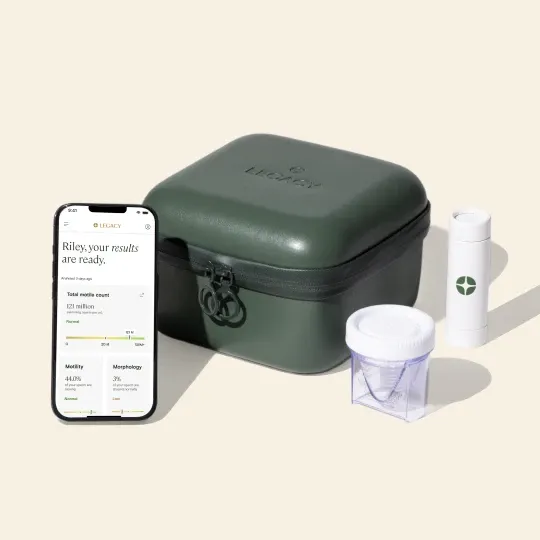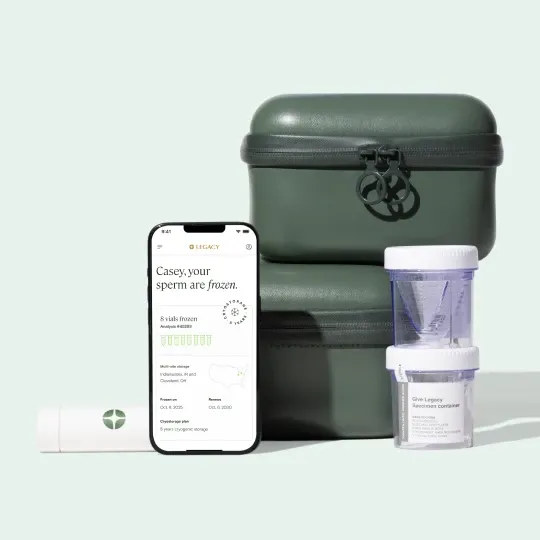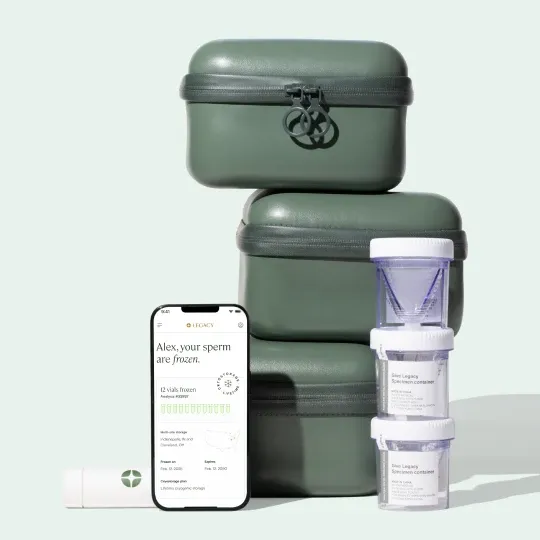Standard

Standard Semen Analysis Bundle
1-year storage
A comprehensive semen analysis that ensures your sample is viable for freezing. Flexible, renewable storage plan to get you started.
$440
In stock
1 collection kit (semen analysis)
4 vials
1-year storage (renewable)
HSA/FSA eligible

Fertility preservation for trans women
If you’re transitioning, proactive fertility considerations are especially important. Gender-affirming hormone therapy and other aspects of transition may have a significant impact on fertility. Read on to understand more about fertility and fertility preservation for trans women and other trans-femme folks who produce sperm.
Sperm freezing is best done before or at the very beginning of hormone therapy. That’s because estrogen and testosterone blockers may affect fertility.
If you’ve already started hormone therapy, you can test your sperm to see how it’s been affected. You may be able to regain fertility by temporarily pausing your hormone therapy.
Frozen sperm can be used in IUI (artificial insemination) or IVF later on.
Fertility preservation means you could have a genetic child even if you’ve taken hormone therapy for years, or have bottom surgery.
Once in storage, sperm remains as healthy and high-quality as it was when you froze it — giving you plenty of flexibility around family-building.
Resources to help on your path to parenthood
See more research-based guides:
Understanding surrogacy
Surrogacy, the process in which a person other than the intended parent(s) carries a pregnancy, may be used by both heterosexual couples and LGBTQ couples, as well as single people.
Read guide for surrogacy

Choosing & using donor sperm
LGBTQ couples, single parents, and infertile couples may choose to use donor sperm. But is it better to use anonymous donor sperm from a sperm bank, or a “known” donor such as a friend or family member? Learn about the pros and cons of each option.
Read guide for donor sperm



